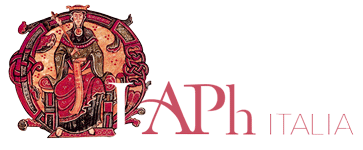
- Questo evento è passato.
Degrowth Society – Feminist Perspectives
31 Ottobre 2016
The question of the limits to economic growth, the search for alternative concepts of
production and consumption, as well as the question of the organization of social life
have long been discussed within feminist debates. In light of multiple crises of
capitalism and since the recent financial and banking crisis of 2008, criticism of
capitalist dynamics of growth and a demand for alternative modes of consumption
and production within the Global North are becoming increasingly discernible.
‘Degrowth’ provides a new and poignant term for these discussions, however often
failing to take feminist debates into account.
Both at national and international levels, new movements arise that seek to combine
the critique of capitalism with concrete alternative economic and social models:
communal living and group housing, urban gardening projects, Local Exchange
Tradings Systems (LETS) or the Slow Food movement, which puts emphasis on
local food production and direct marketing, thus facilitating a more sustainable food
supply through shorter chains of distribution. Countries of the Global North are
increasingly interested in the right to a „good life“ – buen vivir, a concept established
in the region of the Andes, which focuses on the sustainable use of natural resources
and formulates an emancipatory vision of social participation. Dominant theoretical
debates about a degrowth society (Postwachstumsgesellschaft) often neglect the
existing concepts of feminist theory and practice, with regards to economy and
justice, while some approaches even tend to exacerbate gender inequality. Often,
concepts and practices, such as the idea of social prosperity, are being juxtaposed to
the concept of communities of care (e.g. “Convivialist Manifesto”) without taking the
feminist analysis of the terms and conditions of care relationships into consideration,
although debates around justice and care have long been a tradition within feminist
discussions.
For the 2/2007 issue of feministische studien, we would like to invite submissions that
entail a feminist take on the degrowth society debate, which seek to interrogate the
concept theoretically/conceptually and/or empirically from varying disciplinary
perspectives and/or deal with alternative concepts and practices of a gender
equitable, solidarily and dominance free society. Contributions could explore the
following questions:
– What are characteristics of a gender equitable economy, which also keep the
limits of growth in mind? How can the societal relationship with ‘nature’ and
sustainable economizing be governed in a gender equitable degrowth society?
– Is an understanding of economy and work beyond alienation, exploitation and
gendered power relations possible within a degrowth society? Which alternative
forms of economy, consumption and living are visible and how can these be
assessed from a feminist perspective?
– What could a feminist perspective on “the good life”, which takes the critique of
capitalist growth dynamics into account, look like? Which concepts of gender
equality should be the basis for a degrowth society? How could feminist
concepts of equality be linked to existing concepts of a degrowth society?
– What would a degrowth society that is grounded in care look like? How can
work be understood in a degrowth society, which no longer feminizes and thus
devalues care work? Can there be pleasure in care taking and in taking
responsibility for others? Can care be practiced in an emancipatory way and not
as a bothersome necessity that is only done, because otherwise no one else
would do it? Which qualities of care, which already can be observed empirically
today, are essential in a degrowth society?
– How can regionally varying alternative approaches to economy, life and
consumption be analyzed from a feminist perspective?
– What should different areas of daily practice, e.g. food, mobility, or technology,
look like if the changes in social practices are not simply to lead to the weight of
the resulting costs being transferred to women*?
The periodical, feministische studien – Zeitschrift für interdisziplinäre Frauen und
Geschlechterforschung, issue 2/2017 will contain six to eight contributions of articles
(up to 40,000 characters) or discussion papers (up to 25,000 characters) on this
topic, which will be selected through peer-review. We also welcome conference
reports, reviews or collected reviews on publications, which — preferably— deal with
this issue’s main focus.
We welcome abstracts with up to 2,000 characters until October 31, 2016. They are
to be directed to the editors of this issue, Prof. Dr. Christine Bauhardt (HumboldtUniversität,
Berlin), Prof. Dr. Gülay Çağlar (Freie Universität Berlin) and Prof. Dr.
Birgit Riegraf (Universität Paderborn).
Submissions: manuskripte@feministische-studien.de
